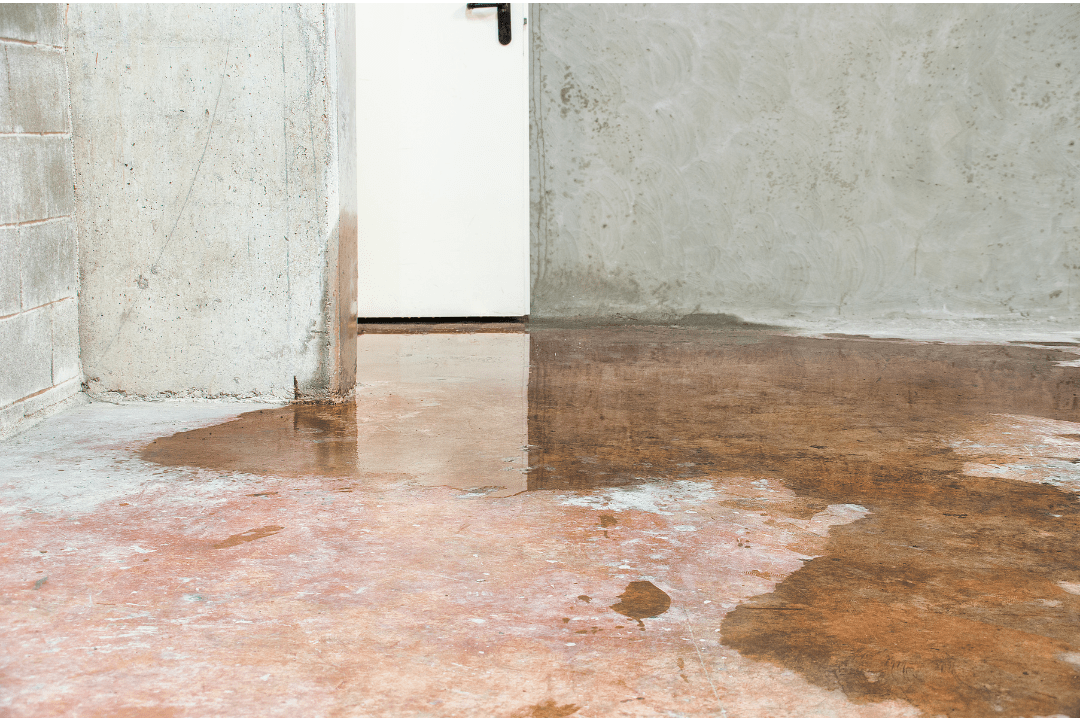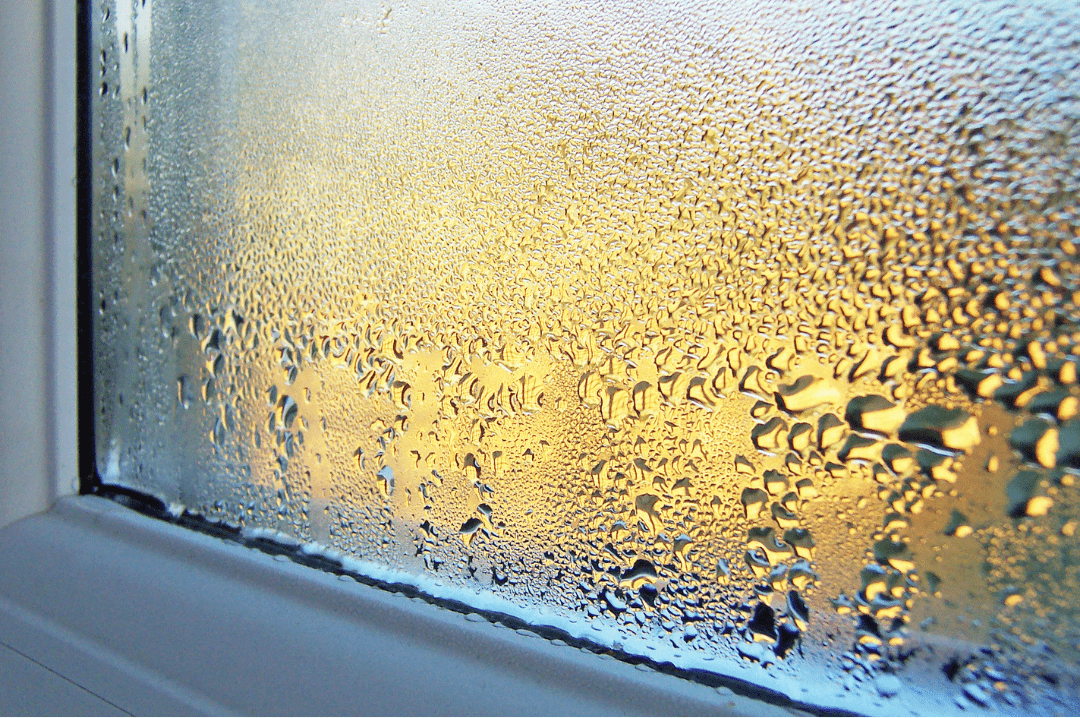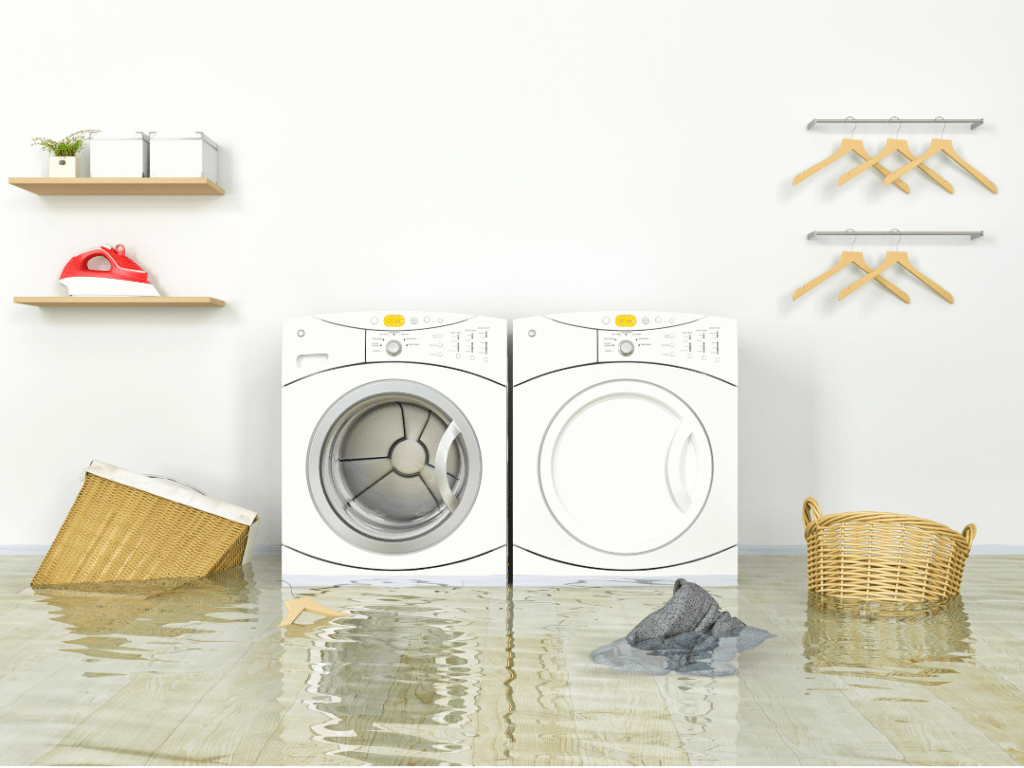Do you have a wet basement? Moisture in your home’s lower levels is not an uncommon problem – basements are notoriously damp rooms! However ordinary it may be, wet floors in your basement can be bad news. It could be a sign of a problem with your foundation or home’s structure.
There’s Too Much Groundwater Around Your Foundation
 Rain and groundwater flowing around the foundation could be making their way inside. When the earth is too saturated to soak up any more water, it can come up through your concrete flooring and force its way through the concrete. It’s a leading cause of basement flooding, but even a little seepage can be alarming. As little as 2.5 centimetres of rain will dump more than 5,500 litres of water around your home! It’s even more of a problem if your foundation has weaknesses – if there’s a crack, water will find it, as in saturated soil, it has nowhere else to go! Sometimes, water is the cause of the crack in the first place – a process called hydrostatic pressure can put tons of pressure on your foundation (quite literally). Without downspouts and gutters directing water far from your foundation, all the rain and meltwater often finds its way into your basement. Poor grading is also a common cause of wet basements. The ground around your foundation should slope away from the house, not towards it. If draining in the wrong direction, water will accumulate against your foundation.
Rain and groundwater flowing around the foundation could be making their way inside. When the earth is too saturated to soak up any more water, it can come up through your concrete flooring and force its way through the concrete. It’s a leading cause of basement flooding, but even a little seepage can be alarming. As little as 2.5 centimetres of rain will dump more than 5,500 litres of water around your home! It’s even more of a problem if your foundation has weaknesses – if there’s a crack, water will find it, as in saturated soil, it has nowhere else to go! Sometimes, water is the cause of the crack in the first place – a process called hydrostatic pressure can put tons of pressure on your foundation (quite literally). Without downspouts and gutters directing water far from your foundation, all the rain and meltwater often finds its way into your basement. Poor grading is also a common cause of wet basements. The ground around your foundation should slope away from the house, not towards it. If draining in the wrong direction, water will accumulate against your foundation.
Lack Of Or Ineffective Subsurface Drainage Systems
Many houses do not have a weeping tile system or sump pump. In many older homes, foundations weren’t built to enclose a habitable space; as such, drainage systems around and below the basement weren’t seen as necessary. More modern homes that have a drainage system often experience problems with it eventually, including clogged pipes, broken connections, and damaged sump pumps. Installing new weeping tiles and sump pumps or fixing an existing system takes a lot of professional know-how. It involves digging up your flooring, adding a drain system, and filling it in; you must also ensure that the system is working and your new pump will expel any water before it can make your basement wet.
Interior Causes Of Wet Basement Floors
 Sometimes, the water in basements came from the basement! Wet floors can come from dryers, showers, cooking, and humidifiers – anything that gives off a lot of heat and humidity. Moisture can even “sweat” out of newly-constructed concrete. Basement condensation is a common issue when warm, moist air touches the cooler basement walls and floor. When the walls cool this moisture-laden air, it condenses. If the moisture in your basement is coming from condensation, congratulations! It’s much easier – and less expensive – to resolve this than a drainage issue or leak. However, if left unchecked, it can still create problems like mould growth, which can require remediation services. If you notice water on your basement floor, check your dryer’s exhaust and the HVAC drain and make sure they are not clogged. Both can put a large amount of moisture into the air. Think about installing a basement exhaust fan similar to what you have in your bathroom, or install air conditioning vents to increase circulation. Insulating walls, pipes, and ducts where condensation is likely to build up can also eliminate excess moisture. Covering those places will keep warm air from contacting their cool surfaces, preventing condensation and keeping moisture off your basement floor.
Sometimes, the water in basements came from the basement! Wet floors can come from dryers, showers, cooking, and humidifiers – anything that gives off a lot of heat and humidity. Moisture can even “sweat” out of newly-constructed concrete. Basement condensation is a common issue when warm, moist air touches the cooler basement walls and floor. When the walls cool this moisture-laden air, it condenses. If the moisture in your basement is coming from condensation, congratulations! It’s much easier – and less expensive – to resolve this than a drainage issue or leak. However, if left unchecked, it can still create problems like mould growth, which can require remediation services. If you notice water on your basement floor, check your dryer’s exhaust and the HVAC drain and make sure they are not clogged. Both can put a large amount of moisture into the air. Think about installing a basement exhaust fan similar to what you have in your bathroom, or install air conditioning vents to increase circulation. Insulating walls, pipes, and ducts where condensation is likely to build up can also eliminate excess moisture. Covering those places will keep warm air from contacting their cool surfaces, preventing condensation and keeping moisture off your basement floor.

